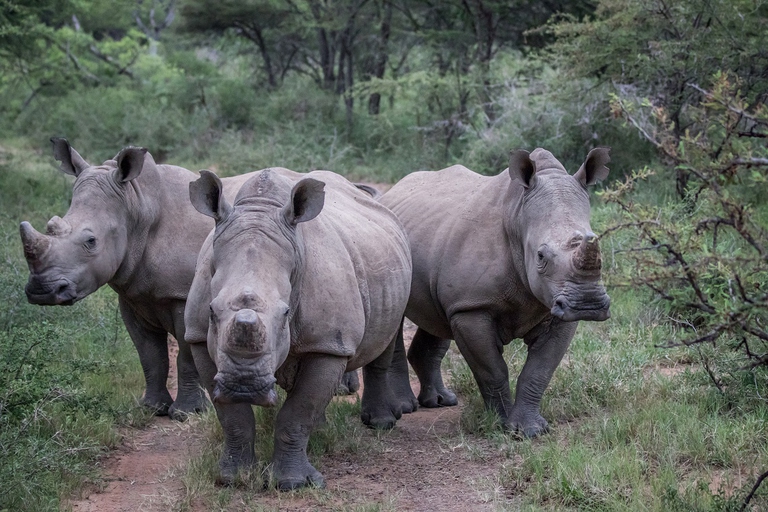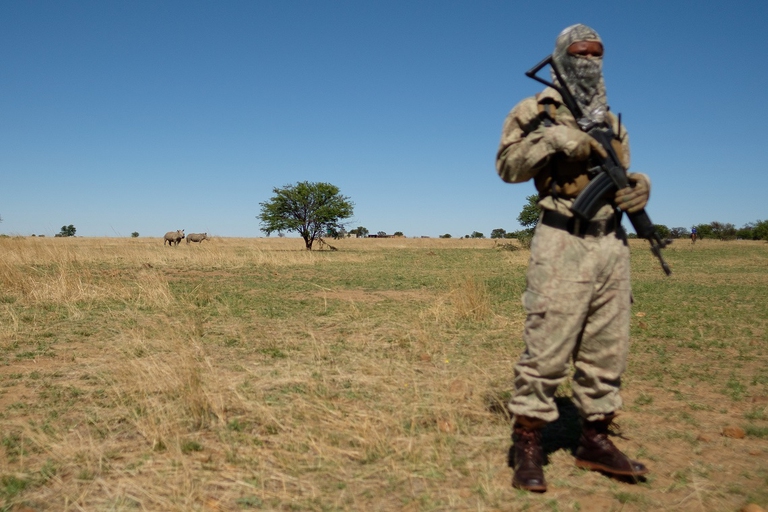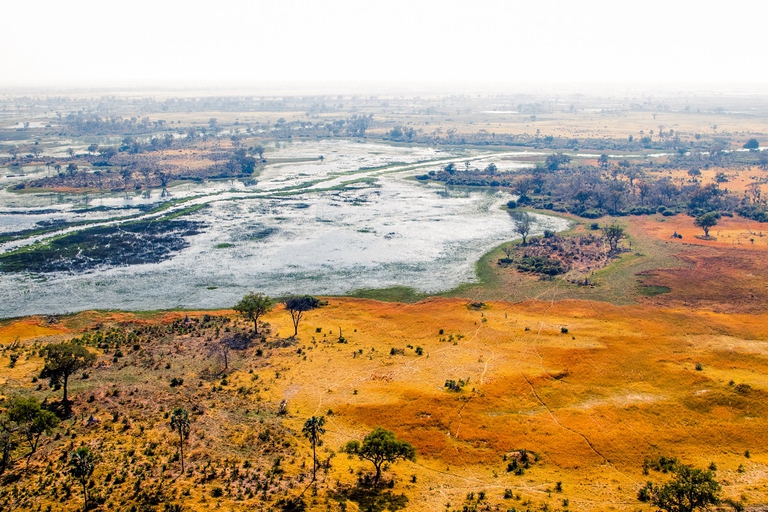
Our species took its first steps in a world covered in trees. Today, forests offer us sustenance, shelter, and clean the air that we breathe.
Grazie ai crescenti sforzi del governo, nel 2019 il numero di rinoceronti uccisi è calato a 594, contro i 769 del 2018.
All over the world, rhino populations face the perpetual threat of poaching and two of the existing five species are on the brink of being lost forever. However, the baby steps taken to safeguard these creatures over the past two years have led to an increase in the number of rhinos worldwide. Ten years ago there were 21,000, today the number has gone up to 27,300.
Whilst remaining a damaging and unsustainable practice, poaching has been on the downfall in South Africa according to the national Department of Environment, Forestry and Fisheries.
Read more: Saving the northern white rhino from complete extinction through in vitro fertilization

The situation regarding rhino poaching in South Africa hit rock bottom in 2015, when 1,175 of them were slaughtered. Since then, the number has been decreasing every year. 769 fell victim to illegal hunting in 2018 and 594 in 2019. Even though there’s little joy to be taken in the murder of just under 600 rhinos last year, the positive trend resulting from the government’s efforts to safeguard wild fauna should be acknowledged.
Read more: Sudan, the last male northern white rhino, has died
Fewer rhinos are being poached and this is credited to a number of policies. Newly implemented technologies have allowed a faster and more effective response. In addition, police forces around the country are cooperating more closely, resulting in more effective sharing and distribution of information as well as improved and closer cooperation on both a regional and national level. Lastly, NGOs and the private sector should also be credited for their increased involvement.
“We’ll redouble our efforts to make sure that communities who live on the borders of our parks benefit from conservation and the biodiversity economy so they’re not vulnerable to recruitment by syndicated poaching operations,” Barbara Creecy, South African Minister of Environment, Forestry and Fisheries, commented.
Read more: Andrea Crosta. The man who uses his intelligence network to prevent poaching and save endangered animals
The South African government has announced a new strategy to fight poaching, the National Integrated Strategy to Combat Wildlife Trafficking (NISCWT). The policy, which will be implemented beginning from the first half of 2020, advocates a multidisciplinary approach to safeguarding rhinos from poaching as part of a broader mission to end all trafficking of wild animals.
“Although the battle to end poaching is far from over, we’re proud to say that our efforts as a government, as private rhino owners and as concerned citizens are paying dividends as we continue to implement the Integrated Strategic Approach to the management of rhinos,” said Minister Creecy.
Read more: Laos, the ups and downs of the illegal wildlife trade in a Chinese-controlled special economic zone
The number of elephants killed in South Africa has also decreased. 71 were killed in 2018, dropping to 31 the following year. In 2019, 178 poachers were arrested in Kruger National Park alone, and a total of 332 poachers and rhino horn traffickers were arrested in the country last year.
Siamo anche su WhatsApp. Segui il canale ufficiale LifeGate per restare aggiornata, aggiornato sulle ultime notizie e sulle nostre attività.
![]()
Quest'opera è distribuita con Licenza Creative Commons Attribuzione - Non commerciale - Non opere derivate 4.0 Internazionale.
Our species took its first steps in a world covered in trees. Today, forests offer us sustenance, shelter, and clean the air that we breathe.
Poachers in Africa are encroaching on wildlife land and killing rhinos in travel hot spots now devoid of visitors due to the coronavirus pandemic.
Actor and environmental activist Leonardo DiCaprio has contributed two million dollars to a fund to protect Virunga National Park in Congo from threats such as terrorism, the coronavirus and poaching.
For the first time in seventeen years, Iceland’s two main whaling companies won’t resume whale hunting. The announcement concerns this year’s season but could carry into the future.
The relationship between the coronavirus and wildlife is complex: while the pandemic may lead to a reduction in the illegal trade in wild animals, it may also encourage it in other respects.
The largest coral reef in the world is severely threatened by climate change, but researchers are developing strategies that could contribute to saving the Great Barrier Reef.
NGO Free the Bears has opened a mountain sanctuary for moon bears in Laos. With the government’s help, it aims to close all bile farms by 2022.
Seychelles have extended its marine protected area, which now covers over 400,000 square kilometres, an area larger than Germany.
The tapir was reintroduced into Brazil’s Atlantic Forest, the country’s most at-risk ecosystem. The species can play a key role in the forest’s recovery.









